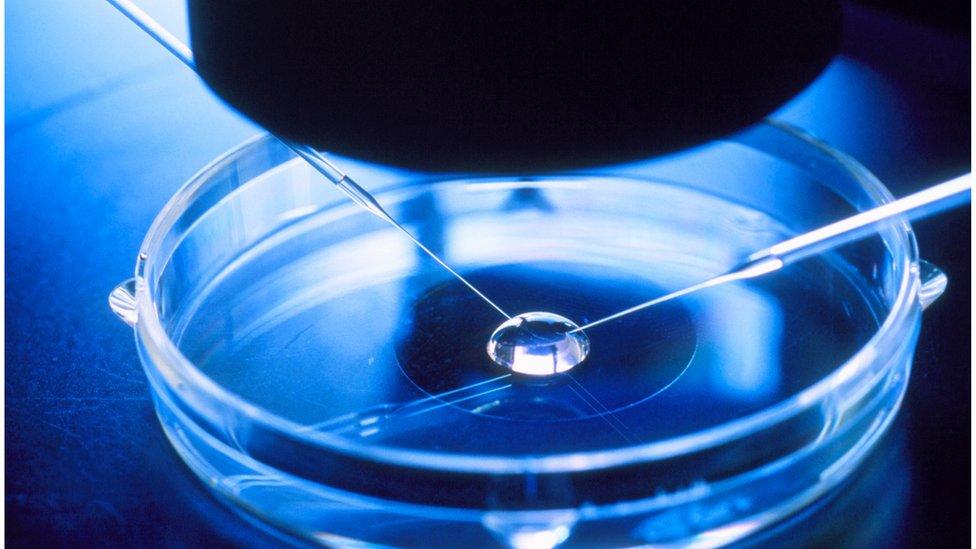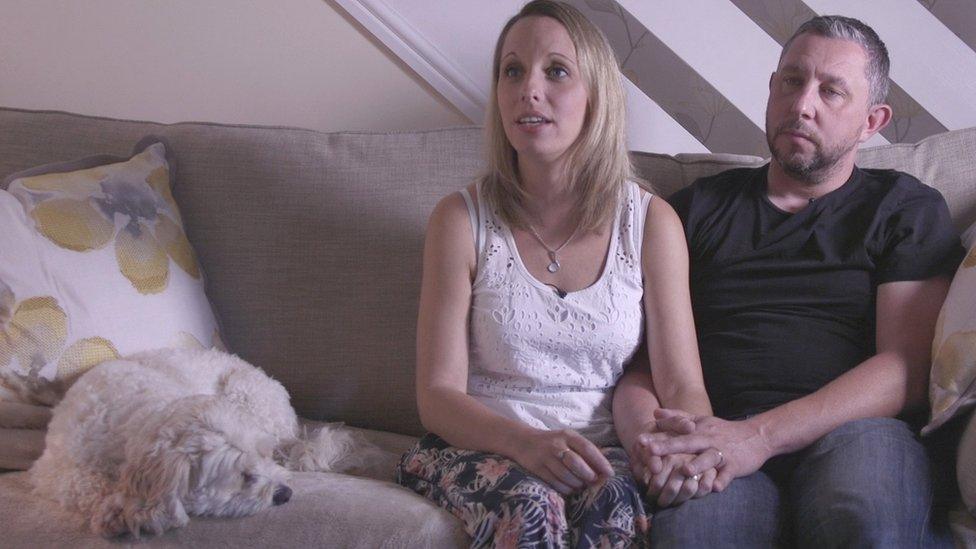IVF rates in England 'at 12-year low'
- Published

NHS guidelines say couples should be offered three cycles of IVF treatment
Campaigners say the provision of free IVF on the NHS in England has fallen to its lowest level since guidelines were introduced in 2004.
Figures from the charity Fertility Fairness show a steady decline in the number of providers offering the recommended three cycles of treatment.
Fourteen local health groups are currently considering whether to reduce or remove IVF provision.
The NHS says it does not have "unlimited resources".
Guidelines from the National Institute for health and Care Excellence (NICE) say women aged under 40 should be offered three cycles of IVF treatment on the NHS if they meet certain criteria.
The NHS in Scotland has promised that level of treatment from next year; in Wales couples are offered two cycles; in Northern Ireland one.

'I went abroad for IVF'
Claire Thomas travelled to the Czech Republic to have fertility treatment. Her son Eddie is now three-months-old.
She was not eligible for treatment on the NHS in her area because her husband already had two boys from a previous marriage.
Claire Thomas describes the heartbreak of wanting a child and being denied IVF on the NHS
"I totally understand, but in our situation it was myself who had the problem so, whether my husband had children previously or not, we would have still needed treatment to be able to have the family that we dreamed of," she said.
Ms Thomas said that while she delighted in being a stepmother, it broke her heart not to have children herself.
"It isolates you socially, I drifted away from my friends as they grew their families and it was not long until depression set in.
"It is a physical health problem as well as emotional."
Her treatment in the Czech Republic had cost £4,500, whereas she was quoted £10,000 for private treatment in the UK.

'Soft option'
In England, fewer than one in five CCGs offer the recommended treatment to eligible couples. In three areas couples cannot get any IVF treatment on the NHS.
Bedfordshire CCG has deferred a decision, due on Thursday, about reducing or removing IVF provision. Thirteen other CCGs are also considering similar moves.
Fertility Fairness argues that continuing disinvestment threatens the very provision of IVF on the NHS everywhere but Scotland.
Sarah Norcross, co-chairwoman of the Fertility Fairness campaign, told BBC Radio 4's Today programme: "IVF does seem to be one of the first things that clinical commissioning groups consider [for budget cuts].
"It seems to be a soft option for them to take - to reduce the number of cycles.
"The NHS treats many, many conditions which are not life saving and IVF is one of those. It's a proven cost and clinically effective treatment and it's been recognised as that twice by NICE now."
Ms Norcross said there was a risk that people refused treatment on the NHS would go to private IVF clinics overseas and be tempted to have more than one embryo transferred in a cycle.
That increased the risk of multiple births of babies which might need expensive intensive care treatment in the NHS, she added.
'Financial squeeze'
The NHS Clinical Commissioners said they do not have unlimited resources, and tough choices have to be made for the good of the whole population.
Dr Amanda Doyle, GP, co-chair of NHS Clinical Commissioners and chief clinical officer at NHS Blackpool CCG said: "Clinical commissioning groups are led by GPs whose first priority is always to the patient.
"Wherever possible we want to give them what they need, including fertility treatment.
"Unfortunately the NHS does not have unlimited resources and ensuring patients get the best possible care against a backdrop of increasingly squeezed finances is one of the biggest issues CCGs face."
- Published31 January 2016
